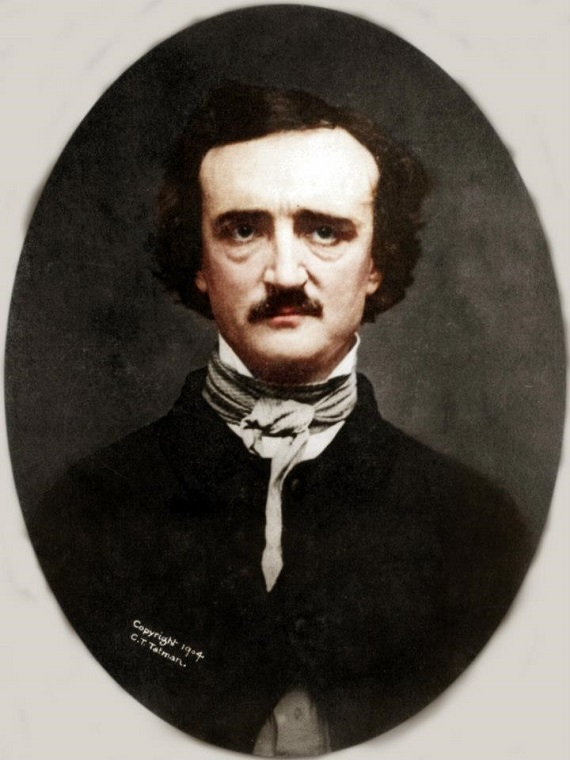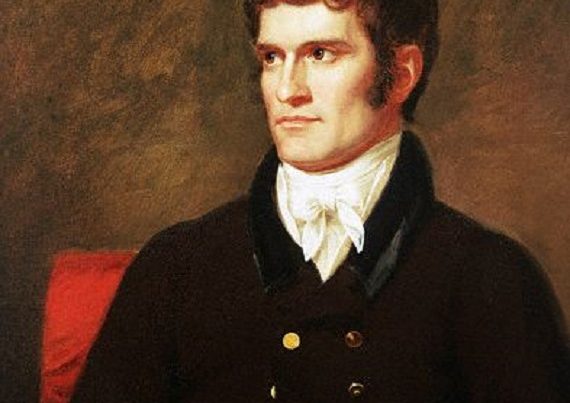
A series by Clyde Wilson
EDGAR ALLAN POE (1809–1849) of Virginia was the great creative genius of 19th century American literature in poetry, fiction, and criticism. Although accidentally born in Boston and spending part of his foreshortened life earning a living in New York, Poe was, and unequivocally considered himself to be, a Southerner. In all his career he was in combat with the New England literary establishment, which he openly ridiculed as “the Frog-pondians,” writers who imagined that their little empire in Boston was the center of the world. While the celebrated authors of New England were writing ditties about “barefoot boys with cheeks of tan,” sleigh rides to grandma’s house, and an imaginary Indian named Hiawatha, not to mention Emerson’s conceited secular sermons, Poe was expanding the musical potential of the English language and the frontiers of human imagination. The great Irish poet William Butler Yeats wrote that Poe was “certainly the greatest of American poets, and always and for every land, a great lyric poet.” Like some other Southern writers, notably Faulkner, Poe’s genius was appreciated in Europe when his reputation was ignored or slandered in Northeastern literary circles. It is possible to give only a slight but hopefully suggestive sample from his large body of poetic work.
Part 1:
Alone
From childhood’s hour I have not been
As others were — I have not seen
As others saw – I could not bring
My passions from a common spring –
From the same source I have not taken
My sorrow — I could not awaken
My heart to joy at the same tone –
And all I lov’d – I lov’d alone —
Then – in my childhood – in the dawn
Of a most stormy life – was drawn
From ev’ry depth of good and ill
The mystery which binds me still –
From the torrent, or the fountain –
From the red cliff of the mountain –
From the sun that ’round me roll’d
In its autumn tint of gold –
From the lightning in the sky
As it pass’d me flying by –
From the thunder, and the storm –
And the cloud that took the form
(When the rest of Heaven was blue)
Of a demon in my view –
Israfel
In Heaven a spirit doth dwell
“Whose heart-strings are a lute”;
None sing so wildly well
As the angel Israfel,
And the giddy stars (so legends tell),
Ceasing their hymns, attend the spell Of
his voice, all mute.
Tottering above
In her highest noon,
The enamored moon
Blushes with love,
While, to listen, the red levin (With,
the rapid Pleiads, even, Which
were seven,)
Pauses in Heaven.
And they say (the starry choir
And the other listening things)
That Israfeli’s fire
Is owing to that lyre
By which he sits and sings—
The trembling living wire
Of those unusual strings.
But the skies that angel trod, Where
deep thoughts are a duty–
Where Love’s a grown-up God–
Where the Houri glances are Imbued
with all the beauty
Which we worship in a star.
Therefore thou art not wrong, Israfeli,
who despisest
An unimpassioned song;
To thee the laurels belong,
Best bard, because the wisest!
Merrily live, and long!
The ecstasies above
With thy burning measures suit– Thy
grief, thy joy, thy hate, thy love, With
the fervor of thy lute–
Well may the stars be mute!
Yes, Heaven is thine; but this
Is a world of sweets and sours;
Our flowers are merely — flowers,
And the shadow of thy perfect bliss Is
the sunshine of ours.
If l could dwell
Where Israfel
Hath dwelt, and he where I,
He might not sing so wildly well
A mortal melody,
While a bolder note than this might swell
From my lyre within the sky.
TO MARIE LOUISE.
EDGAR ALLAN POE.
Not long ago, the writer of these lines,
In the mad pride of intellectuality,
Maintained “the Power of Words”—denied that ever
A thought arose within the human brain
Beyond the utterance of the human tongue:
And now, as if in mockery of that boast,
Two words—two foreign soft dissyllables—
Two gentle sounds made only to be murmured
By angels dreaming in the moon-lit “dew
That hands like chains of pearl on Hermon hill”
Have stirred from out the abysses of his heart
Unthought-like thoughts—scarcely the shades of thought–
Bewildering fantasies—far richer visions
Than even seraph harper, Israfel,
Who “had the sweetest voice of all God’s creatures,”
Would hope to utter. Ah, Marie Louise!
In deep humility I own that now
All pride—all thought of power—all hope of fame—
All wish for Heaven—is merged forevermore
Beneath the palpitating tide of passion
Heaped o’er my soul by thee. Its spells are broken—
The pen falls powerless from my shivering hand—
With that dear name as text I cannot write—
I cannot speak—I cannot even think—
Alas! I cannot feel; for ’tis not feeling—
This standing motionless upon the golden
Threshold of the wide-open gate of Dreams,
Gazing, entranced, adown the gorgeous vista,
And thrilling as I see upon the right—
Upon the left—and all the way along,
Amid the clouds of glory, far away
To where the prospect terminates—thee only.






